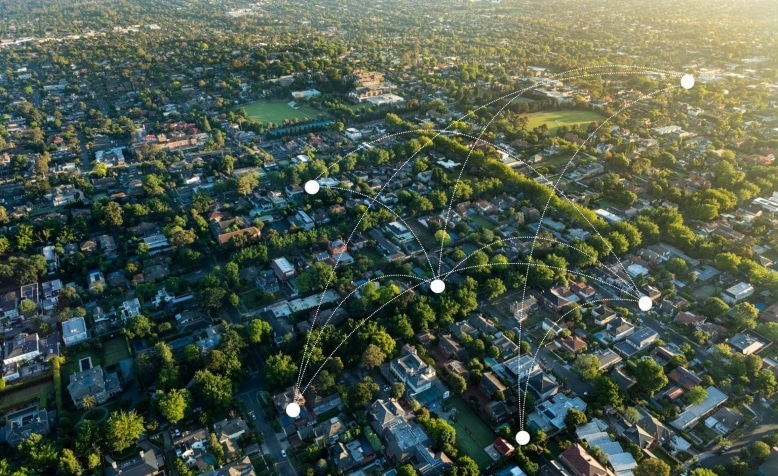Broadband Office Name: Arkansas State Broadband Office (ASBO) – ARConnect
BEAD Award Amount: $1.02 B
Arkansas Broadband Director: Glen Howie
Website: https://broadband.arkansas.gov/
Arkansas BEAD Program Tracker
| State | IP Vol 1 Approval | IP Vol 2 Approval | Challenge Process Submission Closed | Challenge Process Final Determination Phase Completed | 1-Year Subgrantee Selection Process |
|---|---|---|---|---|---|
| Arkansas | Yes | No | Yes | Yes | N/A |
Arkansas BEAD Program Information

Key Updates
The Arkansas State Broadband Office (ASBO) completed its Challenge Process Submission Phase on April 14, 2024, and completed its Final Determination Phase on June 20, 2024.
Once the ASBO receives approval from NTIA on its Initial Proposal Volume 2, it will be able to begin the Subgrantee Selection Process.
Arkansas BEAD Program Plans & Maps
Arkansas BEAD Program Initial Proposal Volume 2: Overview
*Information is subject to change. Arkansas is awaiting official approval of Initial Proposal Volume 2 from the NTIA.
BEAD Long-Term Objectives
The Arkansas State Broadband Office (ARConnect) has outlined the following goals and objectives for the statewide investment of program funds:
- Expand Broadband Access:
- Provide broadband access to all unserved and underserved locations, prioritizing fiber deployment from lowest to highest cost to serve.
- Enhance access at Community Anchor Institutions (CAIs).
- Increase Broadband Data Collection and Utilization:
- Improve broadband data collection, research, and utilization.
- Boost Broadband Adoption Rates:
- Increase broadband adoption rates by 50%.
- Create public awareness campaigns highlighting the benefits of broadband connectivity and infrastructure projects.
- Design a Competitive Grant Program:
- Foster competitiveness and introduce new competition into the marketplace.
- Coordinate with ISPs to offer low-cost service plans and conduct outreach.
- Enhance middle-mile access.
- Reduce the Digital Skills Gap:
- Focus on reducing the digital skills gap, especially among the traditional working age group (18-64).
- Enable Next Generation Opportunities:
- Promote efficient next-generation opportunities in society and government through innovative broadband investments.
- Stimulate Economic Growth:
- Stimulate economic growth through broadband-related non-deployment activities in education, healthcare, small business, and agriculture.
- Enhance Workforce Development:
- Improve workforce development to support broadband infrastructure and related sectors.
Arkansas BEAD Program Project Area Design
Applicants will use Census Block Groups (CBGs) to define their project areas.
Arkansas BEAD Program Extremely High Cost Threshold
ARConnect will calculate the Extremely High Cost Per Location Threshold (EHC) after all tranche-1 and tranche-2 bids have been received and scored. ARConnect will not rely on its own capital-expenditure or operating-expenditure cost models for this calculation. Instead, the EHCPLT will be applied solely as a guardrail to ensure that funding is available to support deployment to 100% of eligible locations.
BEAD Deployment Subgrantee Selection
ARConnect is asking for the following preregistration evidence from subgrantees and compliance with: Financial capability, managerial capability, operational capability, technical capability, ownership info, public funding info, compliance with laws, cybersecurity/supply chain compliance, and BABA/EHP/NEPA/NHPA compliance.
Primary Scoring Criteria for Priority Broadband Projects
- 40 pts – Minimal BEAD Outlay
- 25 pts – Affordability
- 10 pts – Fair Labor Practices
Secondary Scoring Criteria
- 3 pts – Speed to Deployment
- 2 pts – Speed latency, and other technical capabilities
- 5 pts – Workforce Support
- 5 pts – Scale of Geographic Coverage
- 5 pts – Inclusion of zero-bid CBGs
- 2.5 pts – Local Coordination
- 2.5 pts – Weather Resilient Broadband Infrastructure
BEAD Non-Deployment Subgrantee Selection
ARConnect will allocate funding to two state-facilitated non-deployment activities related to workforce development and digital safety. Once these activities are funded, the state will conduct a subgrantee selection process for additional non-deployment activities.
Primary Priorities:
- Education
- Small Business
- Healthcare
- Agriculture
Agriculture in Arkansas:
- Agriculture is Arkansas’s largest industry, contributing $16 billion annually to the state’s economy and employing one in every seven Arkansans.
- Only 23% of farms in Arkansas have reported using precision agriculture.
Three of the four categories align with non-deployment initiatives outlined in the BEAD NOFO, while agriculture was selected due to its critical importance to Arkansas.
BEAD Eligible Entity Implementation
Arkansas will implement two key activities with the remaining BEAD funding without making a subgrant:
- Workforce Development:
- ARConnect plans to award $15 million to its community and technical colleges to rapidly scale up the Arkansas Fiber Academy to meet workforce demands.
- The investment will support the addition of three new training locations, a traveling training program, and wrap-around services for program participants to further expand accessibility to the training program and subsequent job opportunities.
- Digital Safety:
- An additional $5 million has been allocated to raise awareness about digital safety and social media for elementary school children.
Additional Uses of Funds:
- Implementation of a challenge process.
- Grant administration processes, including subgrantee selection.
BEAD Local, Tribe, and Regional Broadband Planning Process
Arkansas has no federally designated Tribal lands. ARConnect coordinated extensive stakeholder engagements with the state’s counties, cities, community members, and key organizations like the Arkansas Connectivity Coalition.
- Accelerate Arkansas Program:
- Developed with the Benton Institute for Broadband & Society, this 14-week planning and capacity-building program offered structured community engagement to identify broadband goals, gather data, understand funding options, and target capital dollars to support local governments.
- Statewide Tour:
- From February to June 2023, ARConnect traveled to all 75 counties on a statewide tour to hear the needs and experiences of the population. This tour spanned 81 days, covered 5,900 miles, and included 878 individual interactions.
- County Broadband Committees:
- ARConnect encouraged every county to form its own County Broadband Committee.
- Arkansas Broadband Leaders Network (ABLN):
- ABLN serves as a communications medium between ARConnect, the County Broadband Committees, and other broadband stakeholders to connect, collaborate, and share information. They meet biweekly.
- Roundtables and Meetings:
- ARConnect held roundtables with local stakeholders to gather input on the BEAD process and met with state agencies to discuss collaboration for program success.
- General Assembly members were brought together to discuss the BEAD program.
- Roundtables with representatives from healthcare, agriculture, small business, and education sectors were held to discuss the optimal use of potential excess funds.
- Workforce Development:
- ARConnect met with workforce leaders across Arkansas to discuss broadband workforce challenges communicated by ISPs. Participants included the Governor’s office, Department of Education, Division of Higher Education, AR Division of Workforce Services, AR Economic Development Commission, and others.
BEAD Labor Standards & Protection
ARConnect requires all BEAD subgrantees to submit the following information:
A record of past compliance with federal/employment laws:
- Must address info on deployment projects within the last 3 years.
- Certification form from an Officer/Director level employee of past compliance.
- Written confirmation that subgrantee has disclosed any violations from contractors within the last 3 years.
- Discussion of workforce plan
Plans for ensuring compliance with federal/employment laws:
- How subgrantee will ensure compliance in its labor/employment practices.
- Info on applicable wage scales, wage, and overtime practices for each class of employee expected to be involved in physical construction of the network.
- How subgrantee will ensure implementation of workplace safety committees.
- Comply with the Prevailing Wages Act.
- Other items as outlined in the BEAD NOFO.
BEAD Minority Business Enterprises / Women’s Business Enterprises / Labor Surplus Area Firms Inclusion
By collaborating with a wide array of public-sector, private-sector, and community stakeholders, the Arkansas Economic Development Commission (AEDC) has already created an online directory for small and minority businesses that ARConnect can use for data tracking.
Key Actions:
- Data Tracking and Information Solicitation:
- ARConnect will solicit information from potential subgrantees regarding their history of work with Minority Business Enterprises (MBEs), Women Business Enterprises (WBEs), etc.
- Partnering with AEDC:
- ARConnect will partner with the AEDC’s small business division to create a solicitation list for BEAD deployment and non-deployment projects.
- Community-Based Organization Partnerships:
- ARConnect will collaborate with community-based organizations to raise awareness of funding opportunities and requirements for BEAD-related projects, encouraging subgrantees to use the solicitation list.
- Reduce barriers for MBEs, WBEs, etc., by conducting roundtable discussions to identify opportunities.
- Encouragement of Technical Assistance:
- ARConnect encourages the use of technical assistance institutions such as the Small Business Administration and the Minority Business Development Agency.
BEAD Cost & Barrier Reduction
1. Promoting the use of existing infrastructure.
2. Promoting and adapting dig-once policies: Arkansas law mandates providers to call Arkansas 811 to have underground facilities located before commencing any digging. Prevents potential damage to underground facilities.
3. Streamlining permitting processes.
4. Streamlining cost-effective access to poles, conduits, and easements.
5. Streamlining rights of way, including the imposition of reasonable access requirements.
BEAD Low-Cost Broadband Service Option
Low-Cost Plan Pricing Formula: The price of low-cost plans in Arkansas will be determined using the following formula:
State Monthly Max LCP Price = (Upper Limit of State Bottom Quintile Household Income x 2%) / 12
This formula ensures that the annual cost of the state’s low-cost plan does not exceed 2% of the state’s bottom-quintile household income. Dividing this annual cost by 12 determines the monthly price for the low-cost plan. Based on the Census’s latest American Community Survey (CASC) data, Arkansas’s bottom-quintile household income is $22,099.
Therefore, the maximum monthly price for the low-cost plan should be around $36.83.
Basic Service Characteristics and Future Upgrades:
- The low-cost plans must include basic service characteristics and accommodate future technical upgrades.
- The plans must provide a minimum bandwidth of 100/20 Mbps.
- Typical latency should not exceed 100 milliseconds.
- The service must not be subject to data caps, surcharges, or usage-based throttling.
Program Participation:
- Low-cost plans must allow end users to apply for ACP and Lifeline program benefit subsidies to the service price.
BEAD Middle-Class Affordability
Arkansas’s Middle-Class Affordability Plan focuses on three key priorities:
- Enabling Entrants to Increase Market Competition:
- Encourage new market entrants to foster competition and drive down prices.
- Inclusion of Affordability in Subgrantee Applicant Scoring:
- Factor affordability into the scoring criteria for subgrantee applicants to ensure that affordable broadband options are prioritized.
- Conducting a BEAD Outreach Campaign:
- Promote consumer awareness through a BEAD outreach campaign to educate residents about affordable broadband options and available subsidies.

